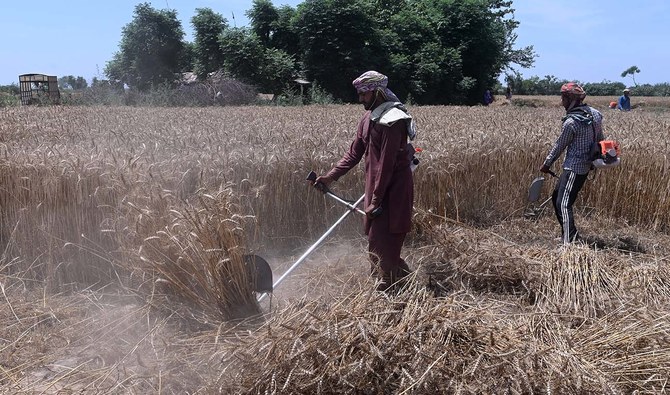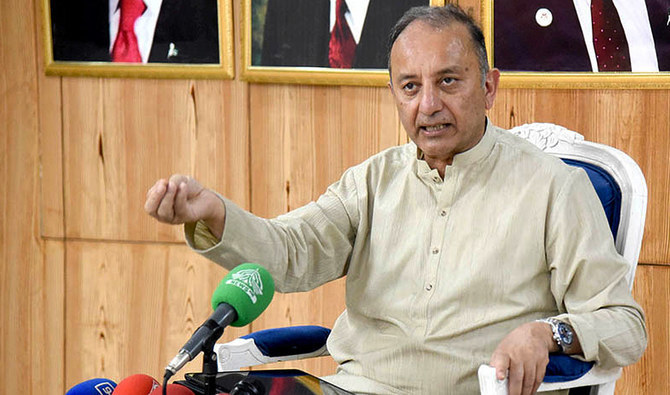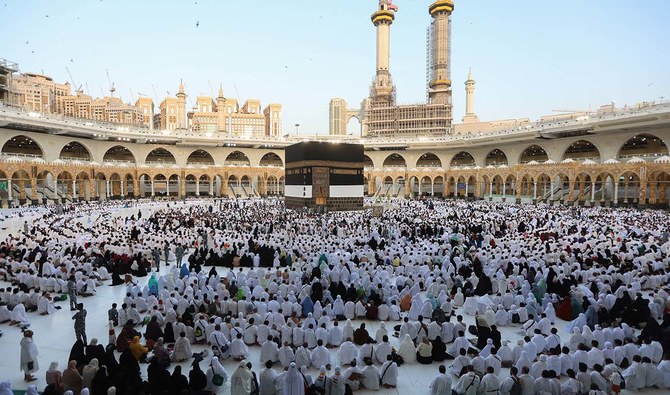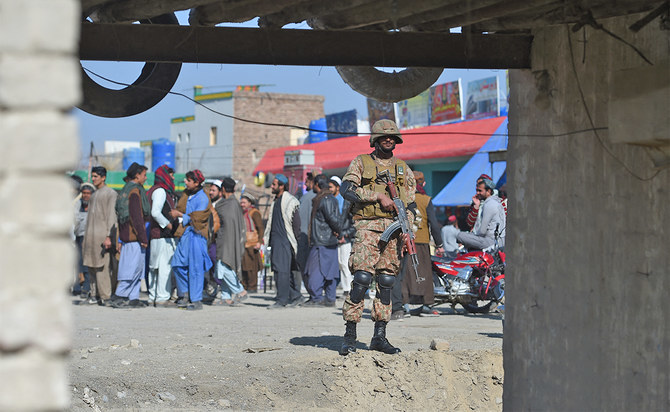PESHAWAR: Over 550 women contested local government elections in Pakistan’s northwestern Khyber Pakhtunkhwa province on Sunday, the election commission said, in what is the first time that local polls are being held in districts that used to be part of the Federally Administered Tribal Areas (FATA).
Polling started at 8 a.m. and closed at 5 p.m. in the first phase of the polls in 17 districts of Khyber Pakhtunkhwa.
Elections are being held in Charsadda, Nowshera, Mardan, Peshawar as well as in Khyber, Mohmand Agency, Swabi, Kohat, Karak, Hangu, Bannu, Lakki Marwat, Tank, Haripur, Buner, Bajaur, and DI Khan, with more than 35,700 candidates in the run for tehsil council, village council and neighborhood councils.
About 3,900 women candidates are in the contest, including from FATA, which was merged with the Khyber Pakhtunkhwa province in 2018.

Women workers prepare a voter list ahead of local body elections in Peshawar, Khyber Pakhtunkhwa, Pakistan, on December 18, 2021. (Photo courtesy: Dr. Nadia Mubarik)
Before the merger, the movement of women and girls in the tribal belt was largely restricted, they rarely left their homes, and were overwhelmingly denied the right to vote. But as the region went to local polls on Sunday, some nine percent of nearly 6,380 candidates in three districts were female.
“For the first time, 557 women are contesting from three districts of erstwhile Federally Administered Tribal Areas (FATA), including Khyber, Mohmand and Bajaur,” Sohail Ahmad, a provincial spokesperson for the Election Commission of Pakistan, told Arab News.
The women candidates said they were taking part in the polls to fight for their rights in a deeply patriarchal region.
“Women rights are completely ignored in tribal areas because women are not educated and ill-informed about their rights,” Subhania Bibi, 37, who is contesting the ballot in Khar, Bajaur district, told Arab News. “The first thing I want to do after winning the election is to launch an awareness campaign about the importance of women’s education.”

Rabia Bibi a Mohmand district contender in local bodies elections taking place in Khyber Pakhtunkhwa, Pakistan on December 19, 2021. (Photo courtesy: Rabia Bibi)
Deena Bibi, 64, who is running for a village councilor seat in Tarakzai, Mohmand district, said her candidacy was supported by her children.
“These are proud moments for me because I’m contesting elections due to extended support of my children,” she told Arab News.
Her daughter-in-law, Rabia Bibi, 31, who is also in the race, said she wanted to focus on access to education, especially for girls.
Female literacy in the tribal areas is about 12 percent, compared with over 50 percent in the rest of the country.
“I was worried seeing women who don’t even know the importance of Computerized National Identity Cards and votes. My husband told me it is the best chance for me to serve women to ensure their rights,” Bibi said.

Female workers prepare a voter list, a day before local body elections, in Peshawar, Pakistan, on December 18, 2021. (Photo courtesy: Dr. Nadia Mubarik)
Her husband, Shah Nawaz Tarakzai, said he was proud of his mother and wife.
“I think that a woman knows comparatively better about the problems being faced by other women,” he said. “That’s why I allowed my mother and wife to contest.”
Strict security arrangements were in place as over 12.6 million voters went to the polls in the 17 districts of Khyber Pakhtunkhwa. Nearly 80,000 law enforcers were deployed in areas where polling took place.
In a second phase, local bodies’ elections will be held in the remaining 18 districts of Khyber Pakhtunkhwa on January 16.
















